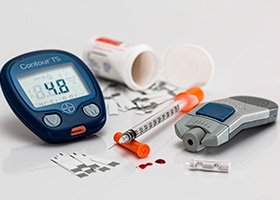
All iLive content is medically reviewed or fact checked to ensure as much factual accuracy as possible.
We have strict sourcing guidelines and only link to reputable media sites, academic research institutions and, whenever possible, medically peer reviewed studies. Note that the numbers in parentheses ([1], [2], etc.) are clickable links to these studies.
If you feel that any of our content is inaccurate, out-of-date, or otherwise questionable, please select it and press Ctrl + Enter.
An alternative to insulin injections has emerged
Last reviewed: 02.07.2025
 ">
">Scientists from Switzerland have completed the creation of an alternative to insulin injections for diabetics.
Today, the only drug that helps patients with diabetes survive is insulin, which should be injected regularly. It is prescribed to maintain adequate blood glucose levels: in type 1 diabetes and sometimes in type 2 diabetes. If it is type 1 diabetes, the function of the pancreas may be impaired in childhood: insulin is prescribed in this case. When autoimmune diabetes develops, beta cell damage continues for decades.
Scientists have long tried to find a remedy that could serve as a full-fledged replacement for insulin. And perhaps this alternative already exists: at least, Swiss researchers are sure of it. They managed to create a specific implant that can significantly ease the lives of patients with diabetes, as it eliminates the need for regular injections.
A unique development was presented by specialists who are employees of the Swiss Higher Technical College (Zurich). The implant created by the scientists is a multitude of receptors and cells collected under a special shell. Its structure was synthesized on the basis of modified kidney cells. Such cells have the ability to accumulate insulin, releasing it only when a specific trigger substance begins to act on the receptor mechanism of the implant. As it turned out, this substance was the real "highlight" of the discovery.
"A trigger is a substance that starts a certain mechanism of action. It is what makes the receptor system in the implant work to release insulin. In this situation, this trigger was caffeine. That is, patients with an implanted implant only need to drink a cup of coffee or another drink containing caffeine to get the next dose of insulin. In this way, the patient can control the insulin supply, monitoring the sugar content in the bloodstream. We believe that this method will be very convenient and will be approved by society. After all, constant injection therapy has many disadvantages: in addition, the life of a person suffering from diabetes depends on a timely injection," the researchers explain.
At the moment, specialists are testing the effect of implants in laboratory conditions. According to experts, all the tests conducted have been completed in favor of the new method. Clinical tests are already being prepared: the studies will be large-scale, involving a large number of patients diagnosed with diabetes.
Presumably, the introduction of implants into clinical practice will be possible in about ten years, reports Hi-Tech News.
